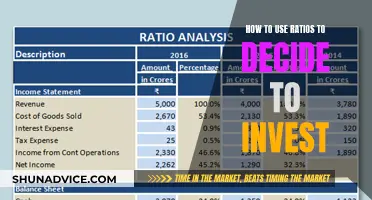
If you're looking for alternative investments to a home, there are a number of options to consider.
Firstly, it's important to note the difference between traditional and alternative investments. Traditional investments include stocks, bonds, mutual funds, and cash. Alternative investments, on the other hand, are non-traditional assets like cryptocurrency, options, private equity, real estate, and art.
1. Real Estate: This includes investing in physical properties or securities such as real estate investment trusts (REITs). REITs are publicly traded and offer a more liquid way to invest in real estate.
2. Commodities: These are natural resources such as oil, natural gas, gold, and agricultural products. You can invest in commodities through ETFs, derivatives, or by directly holding the commodity.
3. Private Equity: This involves investing in private companies or start-ups, often with the help of a private equity firm. Private equity funds are typically only available to institutional investors and high-net-worth individuals.
4. Hedge Funds: Hedge funds invest in a combination of traditional and alternative investments and may use strategies such as shorting or derivatives. They are also usually only available to institutional investors and high-net-worth individuals.
5. Digital Currencies: Cryptocurrencies like Bitcoin and Ethereum are alternative investments due to their decentralized nature.
6. Sports Memorabilia and Collectibles: Certain trading cards, signed jerseys, and game-used sports equipment can increase in value over time, making them lucrative alternative investments.
7. Art: Investing in art, particularly the work of up-and-coming artists, can be appealing. Art is a collectible item that may hold or increase its value over time.
8. Stamps and Coins: Rare stamps and coins can be valuable alternative investments, with some selling for millions of dollars.
9. Precious Metals: Gold, silver, and other metals can be a good alternative to stocks and bonds, as they often have a low or negative correlation with traditional asset classes.
10. Cash: Keeping cash at home or in a safe deposit box can be a straightforward alternative investment, although it doesn't earn any returns and is subject to inflation.
It's important to note that alternative investments often come with higher risks, lower liquidity, and less regulation than traditional investments. They can be a way to diversify your portfolio, but they should be approached with caution and may not be suitable for novice investors.
| Characteristics | Values |
|---|---|
| Low liquidity | Not as easy to sell or convert to cash |
| Higher fees | Expenses tend to be higher than for traditional investments |
| Complex structure | May only be available to accredited investors |
| Less regulation | Subject to the same regulatory requirements as traditional investments |
| Potentially low correlation | May not be correlated with traditional assets |
What You'll Learn

Real Estate Crowdfunding
Benefits of Real Estate Crowdfunding
- Diversification of assets and investment portfolios
- Low startup capital required compared to traditional real estate investments
- Shared cost structure enables investors to access larger property holdings
- Risks associated with ownership are split among multiple investors
- Access to new and exclusive opportunities
- No need to qualify for a mortgage or make regular payments
- Minimal upfront and ongoing investment compared to traditional real estate ventures
Things to Consider
There are also some potential drawbacks and challenges to keep in mind:
- Crowdfunding platforms may charge management or advisory fees.
- Investments may be illiquid, and it can be difficult to sell or divest assets quickly.
- Participants must pay taxes on any dividends received.
- Many platforms and projects lack a lengthy track record of success due to their recent emergence.
- Some platforms require investors to be accredited, with a certain level of income or net worth.
Popular Real Estate Crowdfunding Platforms
- Fundrise: Allows both accredited and non-accredited investors to invest in residential and commercial properties with a low minimum investment of $10.
- RealtyMogul: Offers access to commercial real estate investments and REITs with investment minimums around $5,000.
- CrowdStreet: Provides accredited investors with access to commercial real estate projects with a typical minimum investment of $25,000.
- Yieldstreet: Focuses on crowdfunded real estate financing vehicles rather than direct ownership of property holdings.
- EquityMultiple: Requires a minimum investment of $5,000 to $40,000 for accredited investors seeking privately managed commercial holdings.
CDs: Cash or Investment?
You may want to see also

Partnerships and Syndication
An investment syndicate is a legal structure that allows co-investors to pool their money, expertise, and connections to make a joint investment in a variety of asset classes, including private equity, startup investments, real estate, and crypto. Syndicates are usually formed by companies in the same industry, such as pharmaceutical companies combining their research and development teams to create a new drug, or several real estate companies managing a large development.
Syndicates are typically set up as simple partnerships with a syndicate agreement outlining the rights and obligations of the co-investors. The lead investor is responsible for sourcing and negotiating the deal, as well as administering the ongoing investment. The other co-investors contribute cash and may also bring additional network connections and specific expertise.
- Access to a wide range of private investments: By pooling funds, partners can meet the necessary threshold in ticket size to get access to a deal, leading to a larger range of possible investments, better diversification of assets, and reduced risk.
- Expertise of the lead investor: The partners can benefit from the lead investor's expertise and experience in sourcing, evaluating, and negotiating investment opportunities.
- No administrative burden: The administrative side of the investment is typically handled by the lead investor, who may be compensated with a percentage of the profits in the case of a successful investment.
- Alternative funding: Investment syndicates can provide alternative funding for startups, particularly in the early stages, between financing rounds, or to fill up a round.
- Lean shareholder structure: Instead of multiple shareholders on the cap table, only the investment syndicate appears as a single shareholder, reducing administrative work for the company.
- Diversified parties involved: Involving more and diversified people can be advantageous for a company, especially regarding marketing activities and social branding.
When forming an investment syndicate, it is important to set up an agreement between all partners that defines the rights and obligations of all parties and ensures good governance. The agreement should be drafted in a way that qualifies the partnership as an investment club according to relevant regulations.
In terms of taxation, the investment syndicate is typically set up as a partnership, which is not a tax subject in most jurisdictions. Each partner must declare their investment and any gains in their own tax report. Withholding taxes may apply to dividends and interest payments, and partners may be able to claim these back individually or jointly through the syndicate.
Overall, investment syndicates offer individuals an opportunity to pool their resources and make joint investments, but it is important to conduct thorough research and consult with financial, legal, and tax advisors before making any decisions.
Cash Reserves Investments: A Safe Haven for Your Money
You may want to see also

REITs
Real estate investment trusts (REITs) are companies that own, operate, or finance income-producing real estate across a wide range of property sectors. They were created by a law passed in 1960, which enabled smaller investors to access large-scale commercial real estate projects.
There are three broad categories of REITs: equity, mortgage, and hybrid. Equity REITs operate like a landlord, collecting rent and managing the property. Mortgage REITs, on the other hand, don't own the underlying property but instead own debt securities backed by the property, such as mortgages. Hybrid REITs combine these strategies and own both real estate properties and commercial property mortgages.
When investing in REITs, it's important to consider the different types and their risks. Publicly-traded REITs are the most common and liquid, traded on exchanges like stocks. Public non-traded REITs are registered with the SEC but are not traded on exchanges, making them less liquid. Private REITs are not registered with the SEC and are generally only available to accredited investors.
Before investing in REITs, it's recommended to start with publicly-traded REITs, which have lower barriers to entry and better governance standards. You should also consider starting small, diversifying across REIT categories and property sectors, and investing in REIT funds or real estate index funds for more diversification. Additionally, be mindful of the specific tax implications of REIT dividends, and consult a tax professional for advice.
A Windfall's Wise Investment: Strategies for Sudden Cash
You may want to see also

Manufactured and Mobile Homes
Mobile homes, also known as manufactured homes or trailer homes, are prefabricated structures built in factories and later transported to a home site. They are a budget-friendly alternative to traditional homes, offering affordability, quicker construction times, and modern designs. However, they are not typically seen as a good investment due to their tendency to depreciate over time.
Pros of Investing in Manufactured and Mobile Homes
- Affordability: Manufactured homes are cheaper than traditional homes due to lower labour and material costs.
- Energy Efficiency: They are often highly energy-efficient, with features like insulated skirting, wall insulation, and energy-efficient windows and appliances, leading to lower utility costs.
- Low Maintenance Costs: Repairs and maintenance are generally more affordable due to simpler plumbing and electrical wiring.
- Customisability: Manufactured homes offer a wide range of customisation options, from luxury finishes to additional modules, allowing for versatile usage.
- Recession Resistance: These homes are considered more recession-resistant due to their lower cost and the growing demand for affordable housing solutions.
- High Tenant Retention: Manufactured housing typically has higher tenant retention rates, making it a stable rental income option.
- Eco-Friendliness: The HUD code ensures that manufactured homes meet high standards of energy efficiency, making them eco-friendly.
Cons of Investing in Manufactured and Mobile Homes
- Depreciation: Manufactured homes tend to lose value over time, similar to vehicles. This is a significant drawback for investors.
- Stigma and Zoning Restrictions: There is still a stigma surrounding manufactured homes, and some cities have zoning restrictions that don't allow them. This can lead to less appreciation over time and impact resale value.
- Susceptibility to Natural Disasters: Manufactured homes are less sturdy than traditional homes and are highly vulnerable to damage from natural disasters like hurricanes, tornadoes, and floods.
- Density Restrictions: Many plots of land have density restrictions, limiting the number of units that can be placed, which can impact the return on investment.
Tips for Investing in Manufactured and Mobile Homes
- Renting: One approach is to own a mobile home within a park and rent it out to tenants. Ensure that the rent charged covers the cost of the home and provides a reasonable return.
- Buying a Mobile Home Park: For those with more capital, purchasing an entire mobile home park allows you to lease the land to individual mobile homeowners. This option provides a steady stream of rental income.
- Location and Market Considerations: Consider the demand for mobile homes in your area and the local real estate market conditions. Some states, like Texas, Alabama, and Tennessee, have a higher demand due to the presence of manufacturing plants.
- Maintenance and Upkeep: Manufactured homes require regular maintenance to prolong their lifespan, which can be up to 30-55 years with proper care.
- Financing: Approach the loan process carefully and consider working with local banks that are familiar with the area when seeking financing for your investment.
In conclusion, while manufactured and mobile homes offer advantages such as affordability and customisability, they also come with unique challenges. They may be a suitable alternative investment for those seeking rental income or a more affordable way to live. However, investors should carefully weigh the pros and cons and consider the long-term value of the property before making a decision.
Strategies for Investing Uninvested Cash in a VA529 Plan
You may want to see also

Raw Land
However, investing in raw land can be risky as it may not generate any income and may not result in a capital gain when sold. It is a purely speculative investment, and there is no guarantee of making money or recouping the original investment. When considering investing in raw land, it is important to conduct thorough due diligence and be aware of the potential risks and challenges.
- Location: The value of raw land is often directly related to its location. Land in desirable, developed areas with a growing population tends to appreciate quicker and result in better returns.
- Zoning Regulations: Investors need to be aware of the zoning regulations in the region and how they align with their plans for land use.
- Utilities and Infrastructure: Consider the proximity to basic infrastructure such as electricity, water, and sewage, as well as roadways, schools, medical facilities, and recreational options.
- Environmental Conditions: For any planned recreational use, pristine environmental conditions, including good air quality, are essential.
- Due Diligence: Conduct thorough research on the property, including the identity of the seller and the length of their ownership. Seek expert advice to ensure a comprehensive investigation.
- Taxes and Costs: Be prepared to pay annual taxes, potentially higher down payments, and steeper interest rates associated with raw land investments.
- Supply and Demand: Time your investment by buying during periods of surplus when prices are low and selling during periods of scarcity when prices are high.
In conclusion, investing in raw land can offer substantial benefits, such as low acquisition costs, flexibility, and potential for large returns. However, it is important to carefully consider the location, zoning, infrastructure, and environmental factors. Conducting thorough due diligence and seeking expert advice can help mitigate risks and challenges associated with this type of investment.
Understanding Cash Flow: Investing Activities Explained
You may want to see also
Frequently asked questions
Alternative investments include futures, crypto, art, real estate, commodities, private equity, and derivatives.
Alternative investments can provide diversification and a counterbalance to traditional financial assets like stocks and bonds. They can also provide exposure to areas like real estate, the commodities market, and art, which can be a hedge against losses in the stock market.
Alternative investments tend to carry more risk, be less liquid, and are often unregulated. They may also be difficult to sell and store, and there may not be a clear pricing mechanism.







